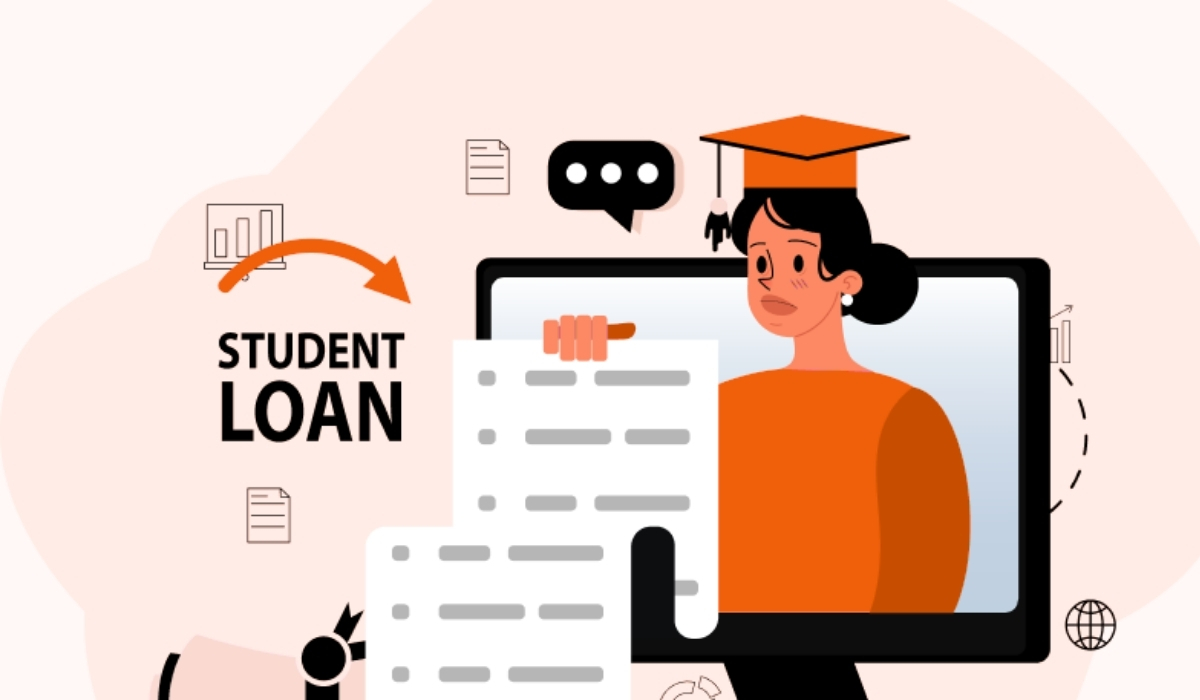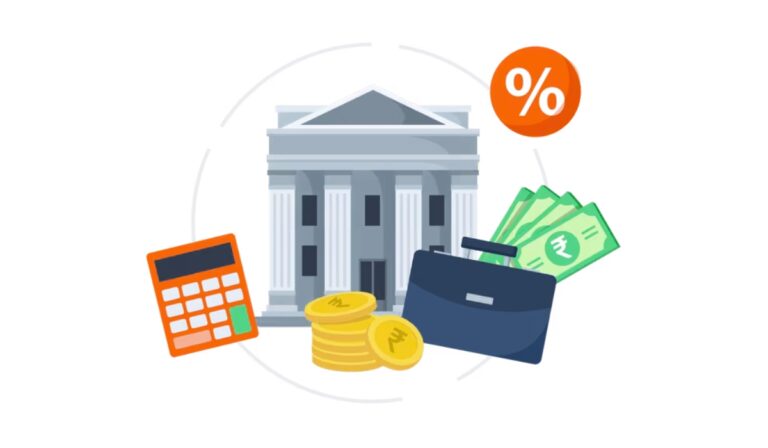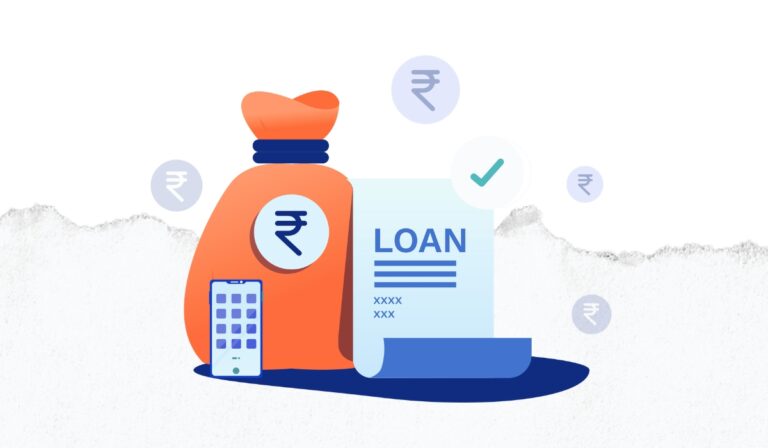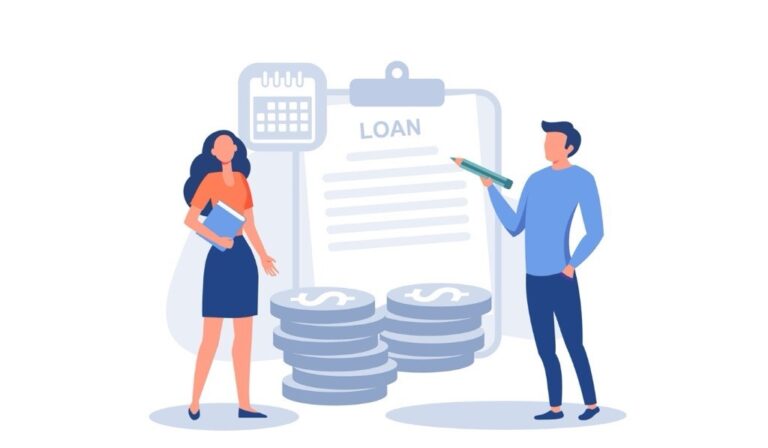Pursuing higher education is an essential part of someone’s future. But the rising fees of tuition, books, or academic expenses can put a lot of burden on your shoulders. While taking a loan for a student’s education is not the only option for students, you can get a personal loan with minimum documentation, fast approval, and more flexibility. Here, in this article, we will provide a detailed understanding of personal loans for education.
What is a Personal Loan for Education?
A personal loan for education is an unsecured loan that borrower use for their academic expense. Such as tuition fees, books, and living expenses. A personal loan is not only used for education, but it can also be used for other purposes.
Eligibility Criteria
- Credit Score: A good credit score (700+) makes you eligible for loans and credit cards with better rates, while a low score (below 650) may limit options or require higher interest. Lenders also check income, debt, and credit history.
- Income & Employment Stability: Lenders prefer those borrowers who have stable income because stable income gives the surety of loan repayment on time.
- 3: Debt-to-income ratio: Most Lenders prefer the DTI below 40%.
- Co-Signer: In some cases, a co-signer is needed. If you add a strong co-signer, it can increase the approval chances.
Key Differences: Personal Loan vs Student Loan
Here, we discuss the difference between a personal loan for education and a Student loan.
| Feature | Personal Loan | Student Loan |
| Purpose | A personal loan can be used for any expense, including education. | It can be used only for educational expenses. |
| Interest Rates | It has a higher interest rate. | It has a lower interest rate. |
| Collateral Requirement | No collateral is required because it is an unsecured loan. | Collateral is required as it is a secured loan. |
| Repayment Flexibility | Fixed EMI with limited flexibility. | Flexible EMI with longer tenure periods. |
| Processing time and documentation | 1 to 7 days, Income proof, credit score, and employment details. | 7 to 15 days, Student admission letter, co-signer, KYC, and collateral papers. |
Benefits of Using Personal Loans for Education
Pursuing higher education can be expensive, but a personal loan gives a flexible financial solution. Whether you are planning to apply for a short-term education course, a diploma course, or are worried about academic expenses, a personal loan can help you a lot in this case. Here, below, we’ll discuss the benefits of a personal loan for education:
- Quick disbursal: Personal loans have faster and higher approval rates. Some lenders give you funds within 24-48 hours. This will ensure that you cannot miss the admission deadline or course payments because of a shortage of funds.
- No end restriction: Sometimes, loan education comes up with some rules and policies, like receipt of the course expense and proof of admission. But with a personal loan, you can use this fund for any educational expense, whether it is tuition fees, a laptop, accommodation, books, or travel costs, without any restrictive rules.
- Suitable for short-term or certification courses: Many banks don’t give loans for short-term courses, but Personal gives a loan for short-term or certification courses without any hesitation. Personal loan helps you to get a skill without financial stress.
When is a personal loan a better option?
Taking an education loan is a very common choice for students, but taking a personal loan can be a more convenient and alternative option. Let’s discuss some scenarios here, when and why a personal loan is a better option:
- For working professionals: If you are a working professional who pursues an executive program or upgrow your skill. So personal loan for education can be a better option for you. Also, you don’t need any co-signer or collateral, which makes the process hassle-free.
- When a student loan is rejected: Many students face the problem of loan rejection due to a lack of collateral or strict eligibility requirements. In this situation personal loan can be a good option for you because lenders focus on your creditworthiness and income rather than your admission proof and academic expense receipt.
- For abroad or skill development courses: If you are thinking of going abroad for education or applying for a short-term skill-based course that could be digital marketing, coding, bootcamps, or certification courses. Then, a personal loan gives you the funds without any restriction, which allows you to pay for tuition fees, travel, accommodation, or any expense related to education.
Risk and Considerations
Personal loan comes with faster approval and easy accessibility, but personal loan has some risks. Borrowers should consider these points while applying:
- Higher Interest rates: Education loans have subsidized rates, but personal loans have high interest rates. Especially when you have a low credit history, because it shows your late and overdue repayment. Always ensure the different lenders for various interest rates, before applying for the personal loan for education.
- Shorter Repayment Period: Education loan offers extended tenure up to 10-15 years, but personal loan has a shorter repayment tenure, which means your EMI would be higher, which can affect your monthly budget.
- Impact on credit score: Some important factors will affect your credit score, including some common mistakes:
- If you apply for loans with many applications, it will affect your credit score for sure.
- Missed EMI can also affect your credit score because it shows your late repayment of a loan.
- If you max out your loan eligibility may reduce future borrowing power.
Tips before applying for a personal loan for Education
It’s a very big decision to take the loan for education. Here we’ll discuss some important tips which help you in applying for a personal loan for education:
- Check credit score: Your credit score plays a vital role in applying for a personal loan. Credit score should be 650+. If you have a good credit score, then it will give you lower interest rates, but if you have a poor credit score, then it will give you higher interest rates and sometimes a rejection.
- Compare Lenders: Don’t settle for only one lender, compare interest rates, processing fees, and repayment terms.
- Use an EMI calculator: Whenever you apply for a personal loan, ensure to calculate the EMI so it will fit in your monthly budget.
Conclusion
Personal loan can be a quick and easy way to get the funds for education. Especially for working professionals or short-term skill-based courses. But at the same time, personal loan comes up with higher interest rates and shorter repayment tenures. Education is an investment. That’s why choose a financial option that doesn’t take off unnecessary debt for you.
FAQ’S
1. Can personal loans be used for education?
Yes, Personal can be used for education.
2. Is a personal loan better than an education loan?
Personal loan can be better than an education loan, but it depends on your need, because a personal loan satisfies your urgent needs for a shorter time; at the same time education loan gives long-term studies with long repayment tenure.
3. What is the interest rate for personal loans for education?
The interest rate for personal loans for education typically 10% to 36% per annum, depending on some basic factors, your credit score, loan tenure, your lender, or your income.
Also read,
- Instant Personal Loan Online Get upto ₹ 20,000
- What Happens If Your Personal Loan EMI Bounces?
- Why CIBIL Score Matters for Personal Loans?
- Personal Loans: A Key Tool for Managing Your Finances
This post is also available in: हिन्दी (Hindi)




